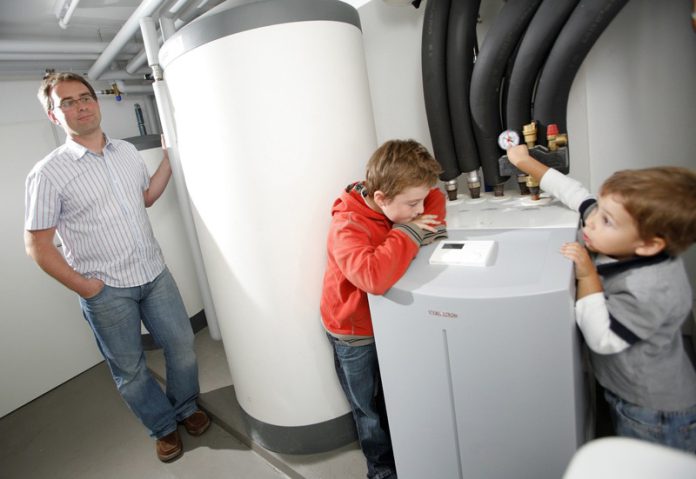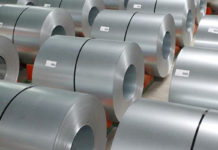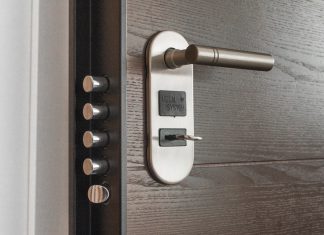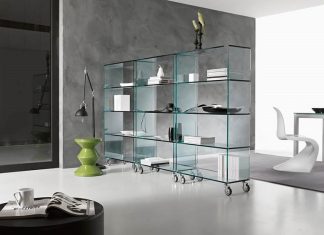Winter is right around the corner. And as a homeowner, that means you need to be thinking about how to keep your house warm throughout the cold season. There are plenty of decisions to be made around home heating but few are as important as determining whether you should go with a furnace or a heat pump. That is, if your home is not already fitted with either one.
Both a furnace and a heat pump will distribute heated air throughout your home via a ductwork system. Supply ducts move heated air to grilles in each room and return ducts draw air to the furnace or heat pump unit for reheating. Whereas the two systems have ductwork in common, they function differently.
Each system has pros and cons depending on the circumstances it operates in. Before you engage a HVAC contractor like jenningsheating.com/canton/ in Canton, Ohio, it’s vital that you understand what each heating system is and what factors should drive your choice to get either one.
Furnace Definition
When most people think about a home heating system, it is a furnace that first comes to mind. A furnace is powered by fuel such as natural gas, propane or electricity. Using an electronic ignition or a pilot light, it generates heat that is distributed throughout the home.
The key components of a furnace are the burner, the heat exchanger that transfers heat, the blower fan to distribute heat, and a flue to exhaust by-product gases.
Heat Pump Definition
A heat pump is an energy efficient heating and cooling system that uses outside air to regulate indoor temperatures. Powered by electricity, it transfers warm air to where it is needed.
During the winter, a heat pump relays heat from the outdoors to your indoors. In the summer, the reverse occurs – the pump transfers the heat from your indoors to the outdoors. A heat pump’s energy efficiency is primarily because it does not actually generate heat, but rather transfers it.
Heat pumps are either air-source, which is the more common, or ground-source. Air-source heat pumps draw on outdoor air while ground-source uses the ground as a heat source.
Dual Fuel System
It does not have to be either-or with furnaces and heat pumps. You can have the best of both worlds with a dual fuel system that blends a gas furnace and a heat pump.
This system runs on the heat pump during milder weather and switches to the gas furnace when colder weather kicks in. This ensures the homeowner can tap into the efficiency of each system, depending on which one is most effective at any point in time.
Key Factors to Consider
1. Cost
Cost should never be the only thing you look at when choosing a heating system, but it is certainly one of the most important. You cannot buy what you cannot afford. In theory, a heat pump costs less, but there is no single universal answer on which will cost more, a furnace or a heat pump.
It largely depends on what heating system the house is already equipped for. For instance, a home that has direct access to natural gas may find that a furnace costs less. On the other hand, the lack of natural gas access would mean spending more to install the furnace.
Areas with lower cost of electricity would be prime candidates for heat pump use.
2. Maintenance
Whereas both a furnace and a heat pump require some routine maintenance, a furnace’s maintenance activities are often fewer and less costly.
The heating elements of your gas furnace will be in use for just a few months of the year, or even less. Also, a gas furnace has fewer moving parts than a heat pump and thus fewer potential sources of system malfunction. Therefore, though your heat pump may cost less upfront, these savings may be eroded by the higher maintenance costs over the long term.
3. Performance
The difference in performance between a furnace and heat pump depends on where you live. Remember, furnaces create heat while heat pumps transfer already existing heat. In more moderate climates such as the Southeast United States where winter averages around 30 degrees Fahrenheit, a heat pump may be your better bet.
That does not imply your heat pump will not work in colder climates. On the contrary, it can draw heat even when outdoor temperatures drop below freezing. Nevertheless, the colder the outside gets, the harder it is to transfer heat. In this respect, a furnace would work better since its ability to generate heat is independent of the outdoor temperature.
A ground-source heat pump can deliver impressive performance in sub-freezing temperatures since it relies on the more stable temperature of the earth. It can be almost as effective as a furnace, but is expensive to install.
4. Precision and Humidity
A heat pump transfers warm air. The temperature of your indoors is therefore dependent on the temperature of the available air. This makes the heating from a heat pump less precise. A furnace allows you to be more specific on the indoor temperature you want.
On the positive side, a heat pump circulates the air in your outdoor and indoor environment that’s naturally humid. This is unlike the hot dry air that is produced by a furnace. The humid air won’t dry your skin and respiratory passages as much a furnace will.
5. Energy Use
The heat pump has a distinct advantage when it comes to energy efficiency. As a heat generator, a furnace needs more energy to operate. Under ideal conditions, heat pumps can relay as much as four times more heat energy than the electrical power they use. In contrast, a highly efficient gas furnace has an efficiency of just 95 percent of energy used.
That being said, this is dependent on the environment you are in. Heat pumps have to work harder during the cold weather to keep your home sufficiently warm. So if you live in an area with freezing winters, a furnace may in fact be more energy efficient.
6. Lifespan
A regularly maintained gas furnace can remain in use for 20 or more years. Heat pumps even when properly maintained have a shorter lifespan on average; usually closer to 15 years.
No One Size Fits All
Comparing the two heating systems along these five factors demonstrates that you cannot definitively claim one is superior to the other. The most appropriate heating solution comes down to your own unique circumstances.
As a general rule, a heat pump may be better in a mild climate and a furnace in areas that experience freezing cold winters. If you are not sure which system is best for you, get in touch with your HVAC contractor for a recommendation.













